society
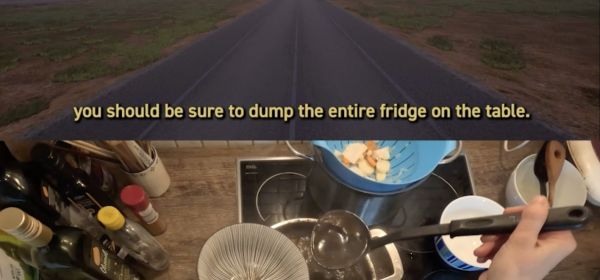
Black Poliuka
director: Tania Licheuskaya
original title: Čornaja Poliŭka
country: Belarus, Germany
year: 2024
running time: 21 min.
One of the qualities that is most ingrained in Eastern European culture is hospitality. Welcoming the guest, setting the table and making sure they return home full and satisfied. But what if a guest has dropped in uninvited and their hunger cannot be satisfied, no matter how hard we try? Since the beginning of the war in Ukraine, Tania Licheuskaya has been recording the first events at the Luninets air base in Belarus, and the black soup she cooks for uninvited guests from the neighbouring country becomes a symbol of resistance.“He breaks into your home without knocking, he is hungry and hopes you will feed him. He has always been hungry, and he likes to expand the boundaries of his appetite. This hunger has a dark history of liberation wars, peacekeeping and anti-terrorist operations.”
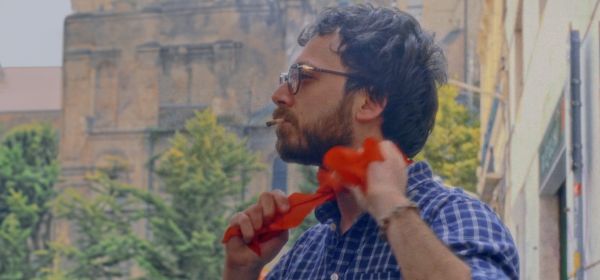
Comrades
director: Joanna Janikowska
original title: Towarzysze
country: Poland, Italy
year: 2024
running time: 61 min.
Simone, Francesca and Olivia are three young people from Bologna who are members of the Communist Renewal Party. Full of life, they take part in demonstrations and party meetings and believe that they can change the current world, dominated by ruthless capitalism and pressure for performance, for the better. At least until the moment when it turns out that it is almost impossible to change the minds of the older party members and the unsuccessful attempts to win new supporters intersect with the difficulties in their personal lives. Comrades is an empathetic time-lapse portrait that shows how the current young generation is losing its illusions due to social pressure and turbulent internal changes, and how difficult it is to keep faith in what we believe makes sense.“By telling the stories of Olivia, Francesca and Simone, I try to show topics shared by many 20-30-year-olds: overstimulation, confusion, and awareness of social inequalities, accompanied by a difficulty in translating their good intentions into actions that bring about real change.” — Joanna JanikowskaQuote source: CineLink Industry Days
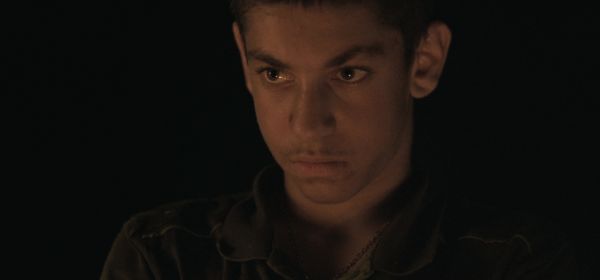
Dajori
director: Martin Páv, Nicolas Kourek
original title: Dajori
country: Czech Republic
year: 2024
running time: 87 min.
The protagonist of Dajori (mother in Romani) is forty-five-year-old Marie Hučková, who lives with her husband in Varnsdorf. After her younger sister Iveta ends up on the streets with her nine children, she decides to take her own fate and theirs firmly into her own hands and attempts to break out of the vicious circle of poverty that characterises their hometown. This sensitive film, which captures three years of a newly formed family's life together, follows the small joys and daily challenges of caring for others and asks whether a mother's love can overcome the dysfunctional system in which socially excluded localities find themselves. “We realised that there was a conflict unfolding before our eyes on several levels. Firstly, there was Mary's inner contradiction, where it was unthinkable for her not to help her relatives in need, but at the same time she was aware of the negative effects of the whole situation on her and her close family. Another level of conflict then played out at the level of the city, and consequently the state. The whole event was related to the housing crisis and the business of poverty in socially excluded localities.” — Martin Páv
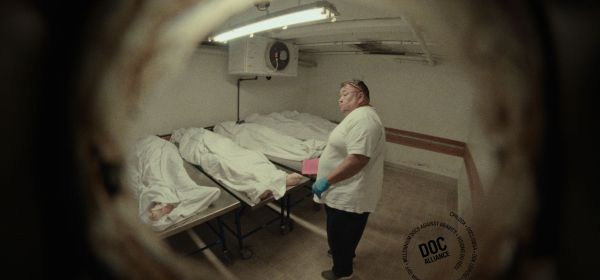
Finale
director: Marlene Lyngstad
original title: Finale
country: Denmark
year: 2024
running time: 21 min.
The moments immediately following a person's death are among the most intimate, accompanied by a sense of loneliness and emotional turmoil. The already soulless body is transported to the morgue in the hospital. The chapel is ready for the final farewell. The pallbearers arrive. Family members survey the preparations. The parish priest prepares his eulogy. Behind the imaginary curtain of secrecy, the film director lets us peek through an imitation voyeur's peephole placed in front of the camera lens. What is for one the finale of a life’s journey may be for another a sequence of repeated actions with no discernible end in sight.“I like to explore things that feel ambivalent, subjects that challenge my own moral codes and references, and trigger an almost physical reaction.”Source: https://nordiskfilmogtvfond.com/news/stories/2023-nordic-talents-to-watch
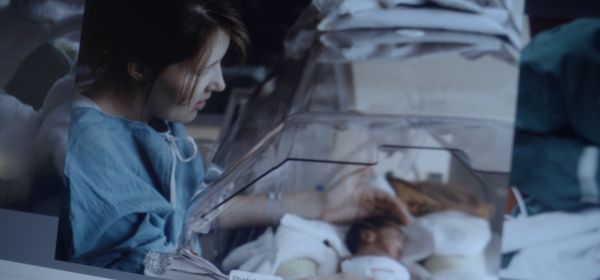
Grey Zone
director: Daniela Meressa Rusnoková
original title: Šedá zóna
country: Slovakia
year: 2024
running time: 75 min.
Some doctors refer to the situation of babies born long before term as a grey zone. At 24 weeks, the fetus is not yet legally perceived as a full human being and the pregnancy can be terminated prematurely. This introspective documentary puts us in the position of a mother inextricably linked to her child who, directly from birth, is given only slim chances of survival by the doctors. The film's tribute to mothers and families of premature babies stands out for the harrowing yet disarming honesty with which the director speaks of her own feelings of fear, humiliation, hopelessness, and hope as her son makes further progress. “Through the intimate confession of a mother, the documentary portrays the often traumatic reality of premature birth, the special care for a premature newborn or later a child with special needs or disabilities.” Source quote: Film profile at AVF
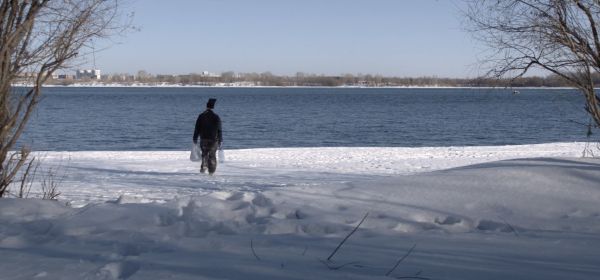
Happiness to All
director: Filip Remunda
original title: Štěstí a dobro všem
country: Czech Republic, Netherlands, France
year: 2024
running time: 96 min.
Vitaly, a nuclear physicist and record holder in extreme cold-exposure training, makes his living as a bricklayer and lives below the poverty line. While his parents, prominent scientists, reminisce about the glory of the regime they willingly built, the avowed patriot from Novosibirsk is gradually changing his mind about Putin's Russia. He rejects its capitalist nature and continues, as a radicalised blogger, to advocate the establishment of a juster regime. This intergenerational clash is typical of the countries of the former Soviet Bloc. While the older generation remembers the certainties and advantages of the past regime, the younger one is hopelessly mired in a crisis of authority, rejecting past and present political representation and resorting to extreme views. Like everything else in his life, Vitaly is experiencing his political awakening in an extreme way as the son of elites relegated to the social periphery after the collapse of the empire. This time-lapse character study, filmed between 2016 and 2024, depicts how long-term frustration and disillusionment lead entire generations and social classes to gravitate towards radical solutions and vote for authoritarian leaders like Putin, Trump or Le Pen. “I'm not afraid of a coup; I'm looking forward to it. Any change will be for the better, because it can't get any worse.”
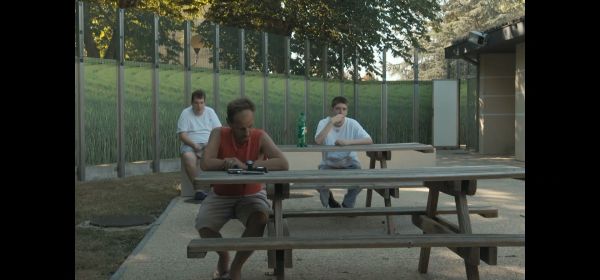
I'm Not With You
director: Marie-Violaine Brincard, Olivier Dury
original title: Je ne suis pas avec vous
country: France
year: 2024
running time: 75 min.
The closed ward of the psychiatric hospital in the city of Cadillac is intended for people who, due to mental illness, are a danger to themselves or those around them. Some wound up there voluntarily, some against their will. The film crew spent one month behind the walls of the institution. The idea was to adapt to its rhythm and disrupt the daily routine as little as possible. The protagonists of the film – Théo, Lucie, Louisette, Hervé or Benjamin – are therefore filmed in long, stationary shots, whether they conduct dialogues and monologues about their dreams and troubles or just smoke cigarettes in the garden. The more time we spend with them, the less we consider the environment they are in and begin to perceive them as dispassionately as the camera does. Not as patients with a diagnosis, but as people with a rich inner life and great imagination who yearn for closeness and understanding. The wall separating the normal from the abnormal thins and the film about institutional care becomes a reflection on the ability to co-exist despite differences.
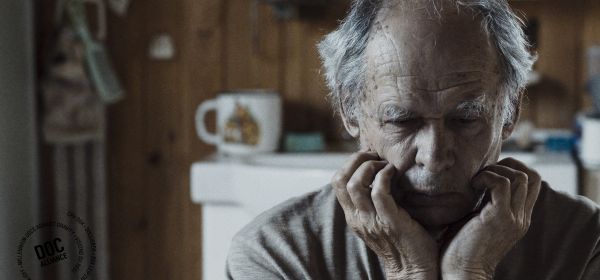
In Limbo
director: Alina Maksimenko
original title: W zawieszeniu
country: Poland
year: 2024
running time: 70 min.
When Russian missiles started flying over their heads, the film director packed a few essentials and left the immediate danger area to visit her aging parents, who live farther inland. But the war soon caught up with her there as well. This documentary diary of the early days of the Russian invasion of Ukraine brings to life the immediate reactions of ordinary people to the horrors unfolding in their neighbourhood. As the conflict escalates, so does the tension in the home, which is gradually stripped of basic certainties such as electricity and heat. But leaving home is not easy. And who would take care of all those cats and dogs if people leave?“Stories about families jammed into one house always turn out badly, but these three are even more isolated. There is no one around, people are leaving, and everyday conversations turn into bitter fights all too quickly.”Quote source: Cineuropa
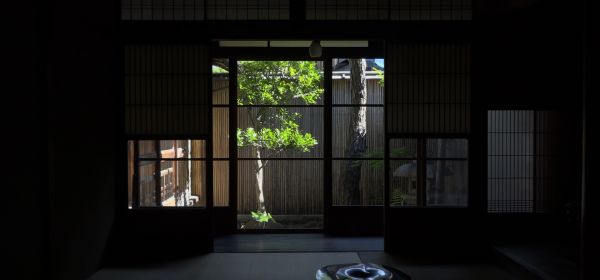
In Praise of Shadows
director: Catherine Martin
original title: Éloge de l'ombre
country: Canada
year: 2023
running time: 86 min.
Inspired by Junichiro Tanizaki's literary essay of the same name, the film is a visual ode to the shadow and its perceived marginality and necessity for living in the light. In traditional Japanese houses, there are spaces dedicated to the sun and places shrouded in the cover of darkness. The form of shadow is modelled by means of permeable materials, deliberate obstructions, or even candle flames, so different from Western mass-produced products. The transformation of shadows with the movement and intensity of light is analogized by the director to celluloid photography and film. Unlike modern digital technology, they are also subject to change as the passage of time affects their chemical stability. Without the shadows cast on the projection screen, we would not be able to watch this film either, reliving a feeling already familiar to prehistoric cavemen sitting around a campfire. “Fleeting shadows ebb and flow in a glistening half-light, an enchanted dreamlike state that reflects on our place in the world, the passage of time, and the very essence of life and its fragility.”Quote source: F3M
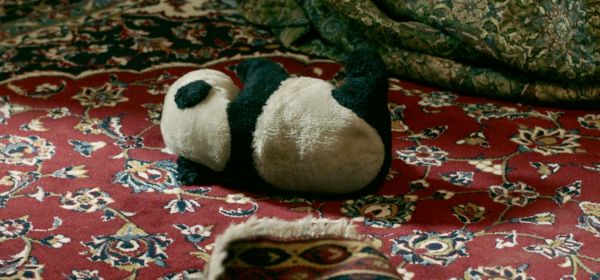
Karun – The Longest River of Iran
director: Sahand Sarhaddi
original title: Karun – The Longest River of Iran
country: Switzerland, Finland, Iran
year: 2024
running time: 19 min.
On September 22, 1998, the Iranian poet Hamid Hajizadeh and his nine-year-old son Karun, whose name symbolically refers to Iran's longest river, were brutally murdered in their home in Kerman. The documentary film, based on the statements of the survivors, tries to sensitively reconstruct one of the many terrible, politically motivated events that took place in Iran at the end of the previous century, and draws us into the fateful day with the help of detailed shots of the objects in Hamid's study.“And he asked, which one torments the other one; The places or the memories…?” — Shahriar MandanipourSource: Berlinale Talents
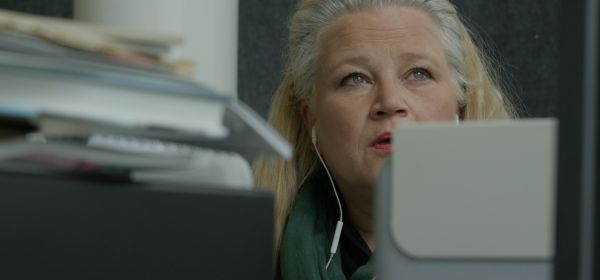
Pit Stop Reporter
director: Zora Čápová
original title: Reportáž psaná na benzínce
country: Czech Republic
year: 2024
running time: 54 min.
Ivana Svobodová, a journalist for the weekly Respekt magazine specializing in the Czech disinformation scene, does not create her reports from her desk, but in the field. She engages in clashes of opinion with people who believe in the positions propagated by bloggers like Vidlák. The plurality of opinion has been transformed by their influence into a battlefield divided into good and bad media. This confrontational portrait of the role of a liberal periodical in the era of rampant social media conspiracies with a sociological overlay discusses the impossibility of dialogue. It asks questions about the difference between opinion and fact, as well as what authority is respected by those who oppose authority and who is the watchdog of democracy.“I don't know what kind of world this is; I don't mean that politically, I mean it humanly. How often does a person get so angry that they want to insult a stranger?”
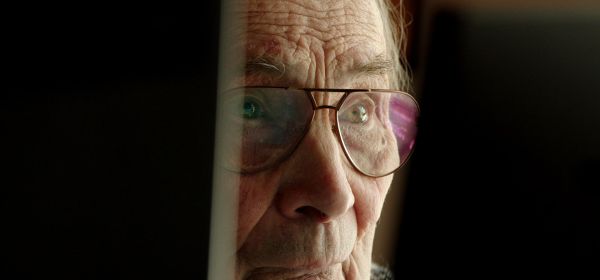
The Art of Looking
director: Andris Gauja
original title: Vaatamise kunst
country: Estonia, Latvia
year: 2024
running time: 16 min.
According to recent findings in astrophysics, the universe is structured as a four-dimensional web-like network. Yet similar structures are created by organisms many times smaller – known as slime mold. Can the parallel between the realms of biology and physics help us understand the mystery of our changing and intricate reality?“The cosmic web is part of the universe's large-scale structure. It is composed of dark matter, gas, and galaxies.”Source: Astronomy Magazine
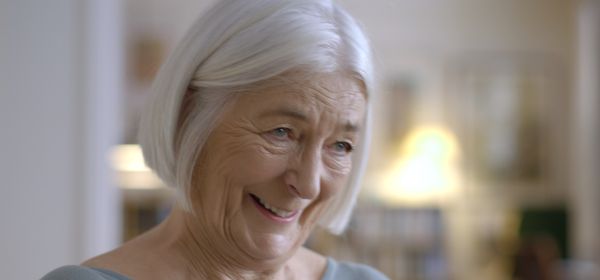
The Day Iceland Stood Still
director: Pamela Hogan
original title: The Day Iceland Stood Still
country: Iceland, United States
year: 2024
running time: 70 min.
The Red Stockings are pioneers of the feminist movement in Iceland. In the 1970s, they crucified a mannequin of a tired housewife on a Christmas tree, brought a live cow to a beauty queen pageant or initiated a mass strike by women across the country. Iceland thus discovered in October 1975 what happens when women leave their homes and jobs and take a day off. The humorous and serious accounts of the strikers, interspersed with Joel Orloff's animations and the closing track by Bjōrk, provide a cathartic testimony to civic awakening and the power of a collective voice to change society.“If you don’t tell this story, it never happened. This is the last chance for the women to put it in their own words, which are so powerful – as opposed to someone sometime in the future writing something based on archival material.” Source quote: Original CIN
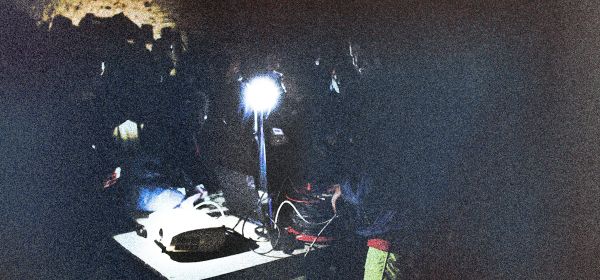
The Empty Houses Are Ours To Do What We Want With Them
director: Giorgos Efthimiou
original title: Τα Άδεια Σπίτια Είναι Δικά Μας Να Τα Κάνουμε Ότι Θέλουμε
country: Greece
year: 2024
running time: 7 min.
A cross between a reportage film and a video essay, the film follows an ordinary evening with the Pugnant Film Series, a Greek independent organisation that organises unconventional screenings for audiences who want to see the most interesting things from the world of independent, auteur and experimental film. This time, the venue for the cinephilic event is an abandoned house in the centre of Athens. Its empty spaces are transformed into cinema halls, which, through the influence of culture and a shared cinematic experience, momentarily return to life. “The empty houses are ours to do what we want with them.”










